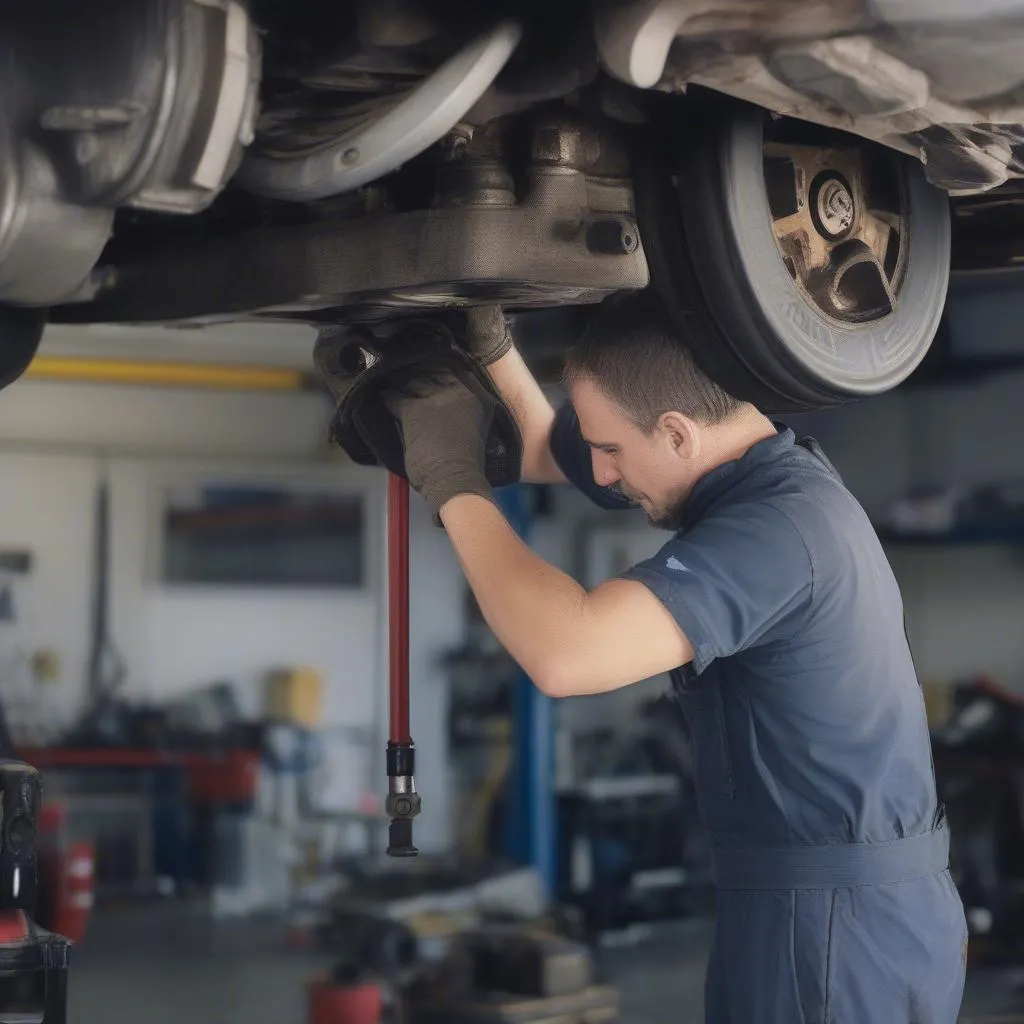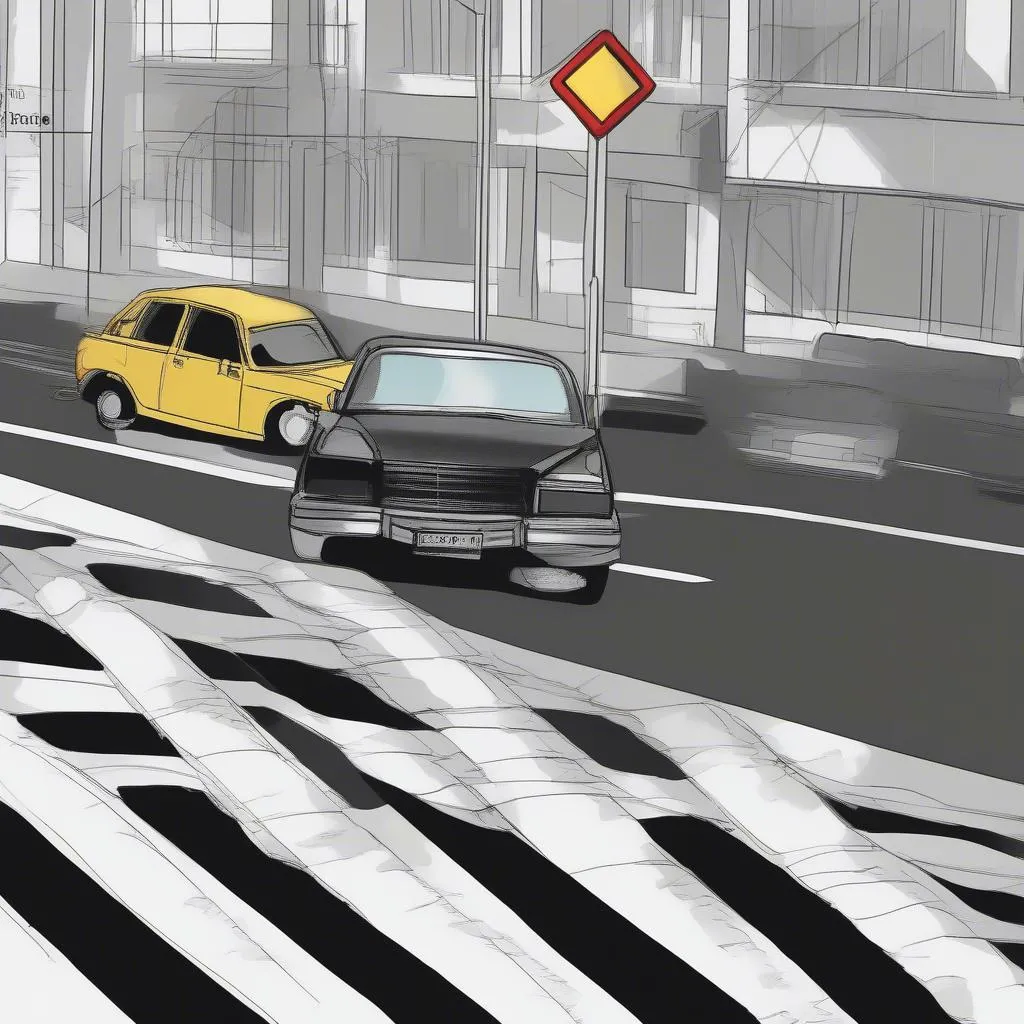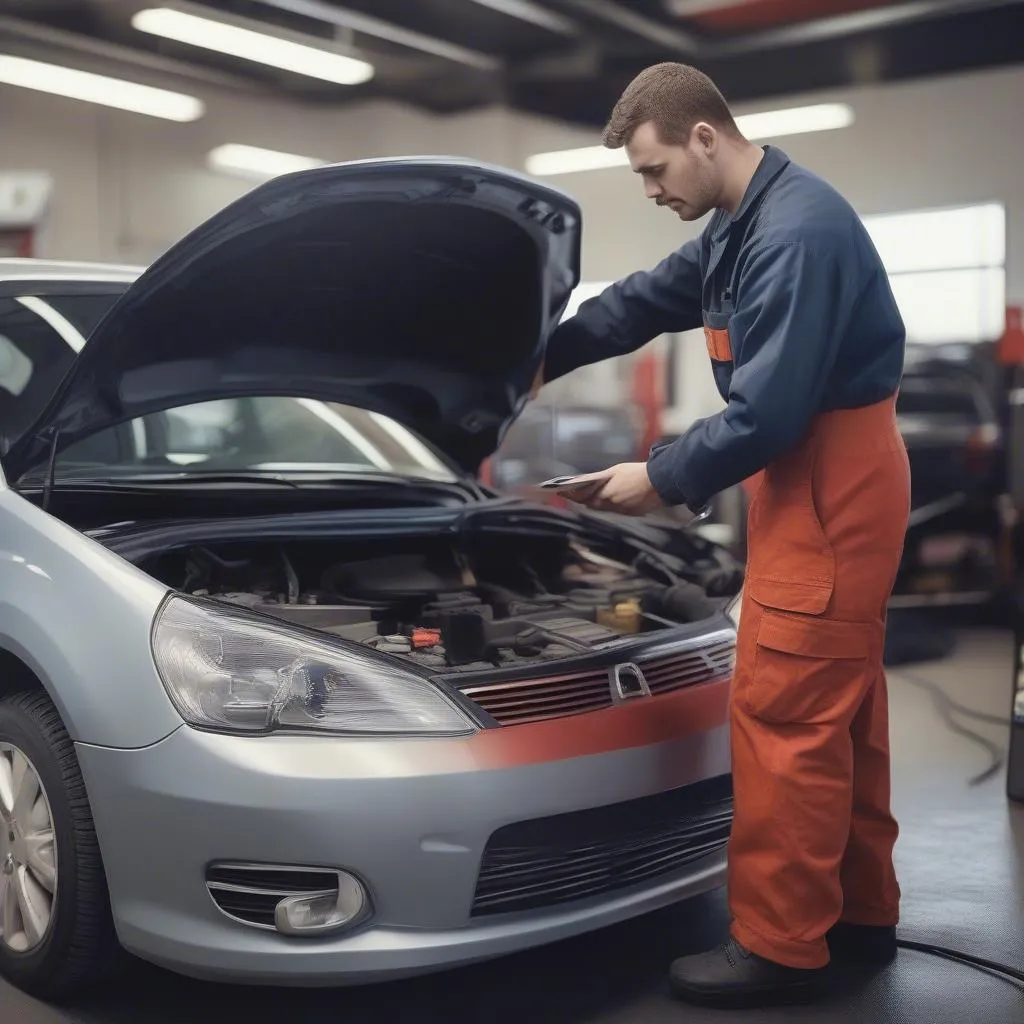Have you ever been stopped at a red light, feeling like your car is about to take off on its own? That unsettling shaking sensation can be unnerving, and you’re not alone in experiencing it. Let’s dive into the common culprits behind this problem and explore how to tackle it.
Understanding Car Shakes While Stopped
This issue, commonly known as “car shaking when stopped,” can stem from a variety of factors.
From a Mechanic’s Perspective
A seasoned mechanic will immediately think about the engine’s performance, especially the engine mounts. They might also consider issues with the transmission, suspension, or even the fuel system. They might use a diagnostic scanner to pinpoint the exact problem.
The Technical Angle
Technically, the shaking usually points to an imbalance in the car’s engine, transmission, or other components. The vibrations might be caused by a malfunctioning part, worn-out components, or simply a lack of proper maintenance.
Economic Impact
Beyond the inconvenience, a shaky car can cost you money. Ignoring the problem could lead to further damage, requiring more expensive repairs. In some cases, the issue might impact fuel efficiency.
Diagnosing the Problem
Common Causes
Engine Mounts: Engine mounts are rubber components that isolate the engine from the chassis, absorbing vibrations. When they wear out, the engine can shake more violently.
Transmission Problems: A faulty transmission can cause a shaking sensation, especially during shifting or when the car is idling.
Suspension Issues: Worn suspension components, such as shocks, struts, or bushings, can lead to excessive vibrations.
Engine Problems: Engine issues, such as misfires, a faulty ignition system, or worn spark plugs, can also cause the car to shake.
Fuel System Issues: A clogged fuel filter, a faulty fuel pump, or fuel injection problems can lead to inconsistent fuel delivery, resulting in shaking.
Wheels and Tires: Unbalanced or unevenly worn tires can cause the car to vibrate, especially at higher speeds.
Brakes: A warped brake rotor or a sticking caliper can cause the car to shake when braking.
Troubleshooting Steps
- Check the Engine: Start by checking the engine mounts for signs of wear or damage. Look for any signs of fluid leaks.
- Inspect the Transmission: Listen for any unusual noises coming from the transmission. Is it slipping or jerking when shifting?
- Review the Suspension: Examine the suspension components for wear and tear. Look for loose or damaged parts.
- Consider the Engine: If the engine is shaking, consider a misfire, worn spark plugs, or a malfunctioning ignition system.
- Evaluate the Fuel System: Check the fuel filter, fuel pump, and fuel injectors for any issues.
- Assess Wheels and Tires: Make sure the tires are properly inflated and balanced. Check the tread depth for uneven wear.
- Inspect the Brakes: Examine the brake rotors for warping. Check the brake calipers for sticking.
Seeking Professional Help
For those less familiar with car mechanics, it’s always wise to seek professional assistance from an experienced mechanic. They can use a diagnostic scanner, inspect the car thoroughly, and pinpoint the exact cause of the problem.
If you’re located in the United States, you might consider contacting a local auto repair shop or visiting a reputable dealership.
Expert Insights
“A shaky car can be a sign of several underlying issues. It’s important to diagnose the problem quickly and properly to prevent further damage,” states Dr. Alice Reynolds, a renowned automotive engineer and author of The Complete Guide to Car Maintenance.
Common Questions
Q: How can I tell if it’s a suspension problem or engine problem?
A: A suspension issue will often cause a noticeable shaking when driving over bumps or uneven surfaces. If the shaking is primarily felt when the car is stopped or idling, it’s more likely an engine-related issue.
Q: Can a dirty air filter cause my car to shake?
A: While a dirty air filter won’t directly cause shaking, it can restrict airflow to the engine, leading to misfires or other performance issues that could contribute to shaking.
Q: Is it normal for my car to shake a little bit when stopped?
A: A slight vibration is normal in some vehicles, especially older models or those with larger engines. However, if the shaking is excessive or noticeable, it’s best to have it checked out.
Want to Learn More?
If you’re interested in learning more about car maintenance and troubleshooting, visit our website at https://diagxcar.com/why-does-my-car-shake-when-i-accelerate/. We have plenty of resources, including articles on diagnosing engine problems and performing basic maintenance tasks.
Need Help?
If you’re experiencing car shaking while stopped and need expert assistance, contact us via WhatsApp at +84767531508. Our team of auto technicians is available 24/7 to answer your questions and provide guidance.
Conclusion
A car that shakes when stopped can be a frustrating experience. The good news is that most cases have simple solutions, from replacing worn engine mounts to getting a tire alignment. By understanding the potential causes and taking the necessary steps, you can restore your car to its smooth-running condition.
Don’t hesitate to ask questions in the comments below or reach out to our team for assistance. Keep driving safely and confidently!
 engine-mount-replacement
engine-mount-replacement
 car-shaking-at-idle
car-shaking-at-idle
 car-diagnostics
car-diagnostics